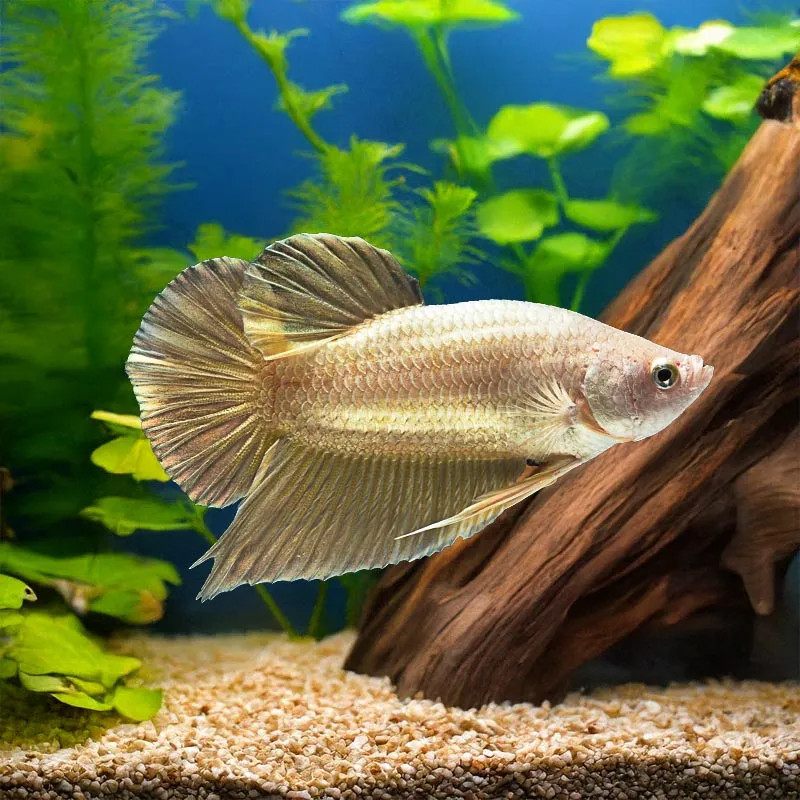Stocks Available
Butterfly Betta
SKU:126188
BETTA SPLENDENS
1.5 INCH

Stock Available
Introduction: • Species: Betta splendens • Common Names: Delta Tail Betta • Natural Habitat: Originates from the shallow waters of rice paddies, swamps, and slow-moving streams across Southeast Asia. Physical Characteristics: • Appearance: Recognized for its triangular tail shape that flares out from the body, resembling a delta. The fins are broad and flowing, often showcasing vibrant colors and patterns. • Size: Typically reaches about 2-3 inches (5-7.5 cm) in length. • Lifespan: Average lifespan of 2-5 years with proper care. Habitat Requirements: • Tank Size: Minimum of 5 gallons is recommended; larger tanks are ideal for providing adequate space and reducing stress. • Water Conditions: o Temperature: 76-82°F (24-28°C). o pH: 6.5-7.5. • Aquascaping: Benefits from a well-planted aquarium with plenty of hiding spots and floating plants to create a comfortable environment. Diet: • Primary Diet: Carnivorous; requires a diet rich in protein for optimal growth and health. • Supplemental Feeding: High-quality Betta pellets, along with live or frozen foods such as bloodworms or daphnia. • Feeding Frequency: Feed small amounts 1-2 times daily, ensuring not to overfeed. Compatibility: • Temperament: Generally peaceful but can be territorial, particularly during breeding or in confined spaces. • Suitable Tank Mates: Compatible with non-aggressive fish of similar size; avoid housing with other male Bettas or fin-nippers. • Incompatibilities: Should not be kept with aggressive fish or other male Bettas to prevent fights. Care Level: • Difficulty: Moderate; requires stable water conditions and proper feeding for thriving. • Health Monitoring: Regularly check for signs of disease, such as fin rot or stress-related issues. Breeding: • Breeding in Captivity: Can be bred successfully in captivity; males build bubble nests for eggs. • Spawning: Males will guard the nest and care for the eggs until they hatch, after which the female is usually removed. Economic Considerations: • Market Demand: Popular among aquarium hobbyists due to their distinct tail shape and color variations. • Pricing: Prices vary based on color patterns and fin quality, generally ranging from moderate to high. Sustainability and Conservation: • Wild Population: Wild populations are stable; most Delta Tail Bettas are bred in captivity. • Aquaculture Efforts: Captive breeding practices help reduce the impact on wild stocks. Conclusion: The Delta Tail Betta is an attractive and vibrant addition to freshwater aquariums, appreciated for its unique tail shape and dynamic colors. With proper care and suitable habitat conditions, this species can thrive and provide joy to aquarists while enhancing the beauty of any tank.
Data sheet
16 other products in the same category: